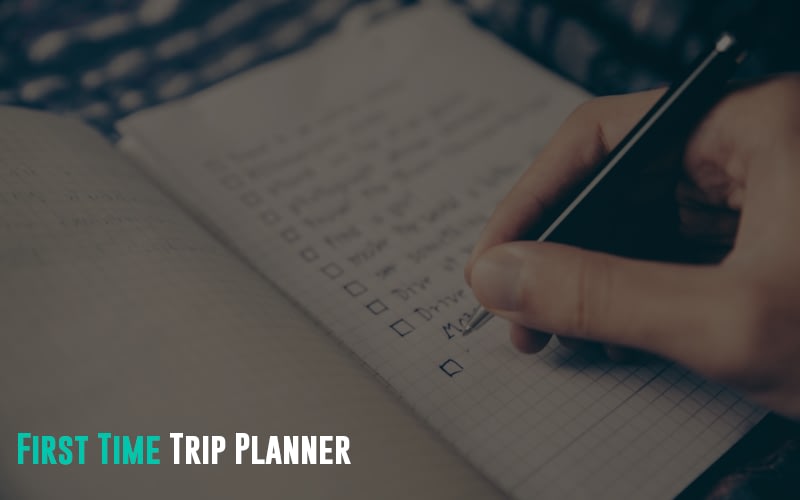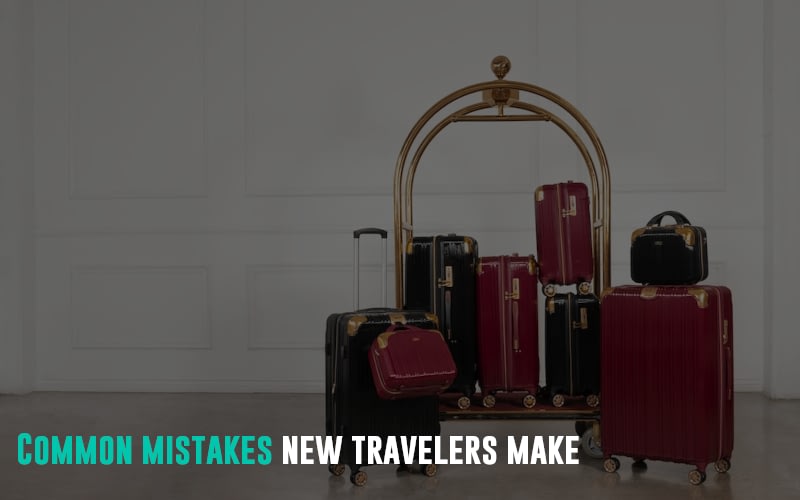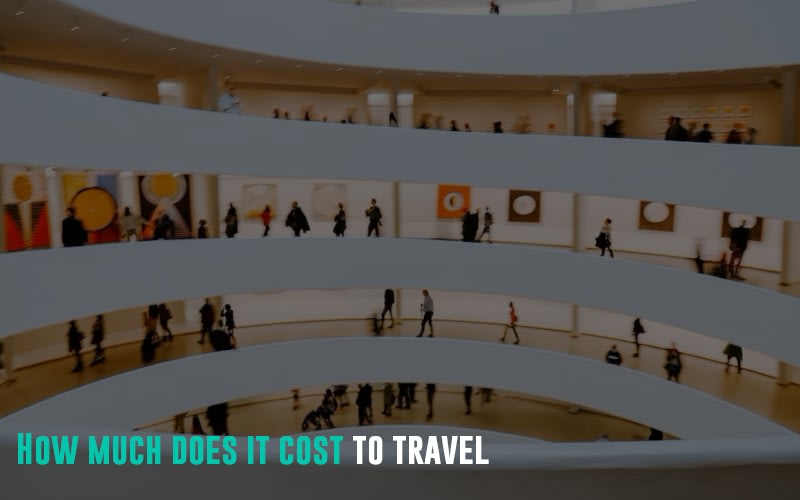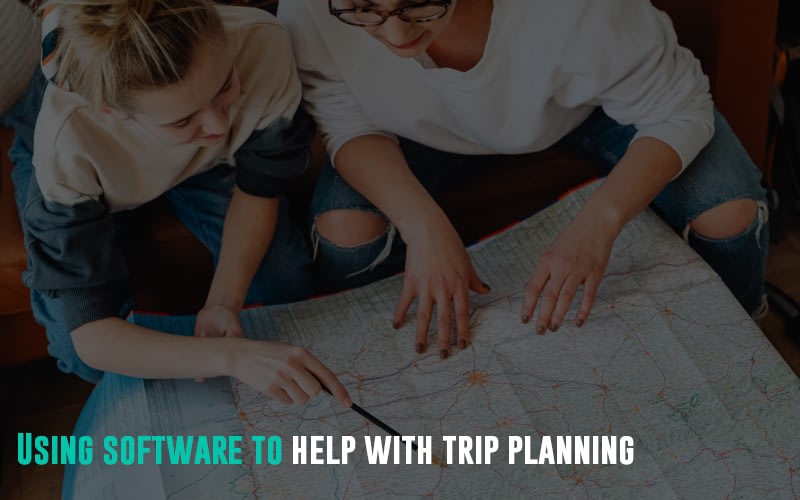Planning a trip can be overwhelming even for a seasoned traveler, so if you do it for the first time, you will surely get some jitters. You will have to make many decisions as a first time trip planner, be it “where to go,” “what to pack,” “whether to travel solo or in a group,” and most important, “where even to begin the planning.” Planning a vacation for the first time can be nerve-racking, which is why we are here to help you. This comprehensive guide will give you every tip and trick on how to plan your first trip.
Featured Image Source
How do you plan a trip for beginners?
Planning a trip can seem complicated, but it doesn’t have to be. You can easily map out your next vacation with the help of some simple steps.
- Choose a destination that excites you. This can feel like a chore since there are thousands of gorgeous places to explore worldwide. Consider your interests and the type of experience you seek and narrow it down to match your budget.
- Have a rough idea of how much you will spend on your trip. Try to make a realistic budget, including expenses for accommodation, transportation, meals, activities, and unexpected costs. A solid budget plan will help you make wise choices and help you avoid overspending.
- Research and gather information about your destination, including things to do, places to visit, and the local culture.
- Create a rough itinerary and list the places you want to visit and activities you would like to explore. Make sure to leave some room for flexibility and spontaneity.
- Book affordable flights and suitable accommodations well in advance, especially during busy seasons. Look for deals and activity discounts to match your budget preferences.
- Make a checklist of essential items to take with you, and don’t forget your passport, travel documents, and chargers. Try not to over-pack and stick to the basics and versatile clothing.
Common mistakes new travelers make
Though traveling is always an exhilarating experience, most new travelers are bound to make some common mistakes, including the following:
Overplanning
Planning is excellent and can make your vacation less stressful, but too much of it can spoil the fun. Trying to cram in too many things in your itinerary will exhaust you and take the fun out of everything. You may not remember many things you do as you struggle to hop from one destination to another. So, keep your itinerary a bit flexible instead of planning everything to the T.
Overpacking
We are all guilty of packing too many clothes while going on vacation. This is especially true if this is your first trip planning. Most newbies will be confused about what clothes to pack and how many will be enough. Remember, you can always re-wear clothes while vacationing. Pack some basic jeans and tee shirts, and some good jackets if you are going somewhere cold.
Ignoring local cuisine and customs
Staying and dining at five-star hotels may seem like a great idea when planning, but it will surely make a big hole in your pockets. Always try eating at local shops or eateries to taste authentic dishes at affordable costs. Similarly, failing to understand local customs and traditions can lead to unintentional cultural mishaps.
Not packing emergency things
Forgetting to take emergency stuff like prescription medicines will bite you, especially when indulging in adventurous activities or even trying out some new cuisine. Similarly, devices like travel adapters are also important since the plugs in the country you are traveling to may not be the same as the ones at your home. Sometimes, you may also need to purchase a new plug in the country you are visiting.
What are the benefits of travel?
Traveling offers numerous benefits, both mentally and physically. It widens your horizons, creates long-lasting memories, makes you independent, and helps you grow personally. Travel can provide new perspectives, helping you see the world differently.
Traveling offers many physical benefits like enhanced sleep quality, better physique, and improved immune system. The mental benefits include reduced stress, improved mental clarity, better mood, and increased creativity. It will also help you form new relationships and gain a better understanding of different cultures around the world.
How much does it cost to travel?
Traveling is quite costly and includes several things ranging from your air tickets to hotel bills. This cost can vary significantly depending on your destination, time of year, and personal preferences.
Some major spending you should prepare for when planning a vacation includes transportation (flight, public transport, car rentals, etc.), accommodation, food, and activity charges.
To get a general idea about the big expenses, let us look at a trip to New York for 3 days from San Francisco.
Rough cost of hotels for 2 nights
In New York, 3-star hotels typically cost around $476 for two nights, while 4-star ones cost around $650. For an excellent five-star hotel, the average cost for two nights is around $1300.
Round trip flight from San Francisco to New York
The prices of a round-trip flight from SF to NY can range from $150-$250. But this price highly depends on seasonal fluctuations, booking time, ticket demands, etc.
Rental car for 3 days
In New York, a car rental costs an average of $150 and higher for three days. However, these prices can vary with different service providers.
Restaurant food for 3 days in New York
Although the cost of meals in New York varies with the restaurant you visit, it typically costs $50/day. Prices for breakfast are often a little less than those for lunch and dinner. Similarly, sit-down restaurants typically charge more for their food than street foods or fast-foods. So you can expect to spend around $150-$200 for three days for meals.
Estimate of events and activity costs
You can do many affordable things, even under $20, in New York, including outdoor activities. Several museums, like the Guggenheim, the Metropolitan Museum Of Art, and MoMA, offer free days and hours. For example, the Bronx Museum of the Arts always offers free entry, so this museum is the most affordable if you are an art lover. Some also offer half-prices and pay what you wish on certain days. So, you can research these days while planning the vacation. All in all, you can keep around $100-$300 in your budget for activities.
The example above will give you an idea of the money you will need for a 3-day vacation. Remember that these prices vary by your home country, time of year, and location you are planning to visit. This is what makes planning so important. Starting early will give you enough time to look for deals, discounts, and other money-saving strategies.
How to visualize trip planning?
Visualizing your trip is very important as it helps you understand what to include and remove from your itinerary. It is also one of the best ways to make your vacation a smooth experience.
The hub and spoke strategy is excellent for a first time trip planner. In this model, you choose a main point of interest as a hub and consider other important attractions around this hub as spokes. For instance, if you’re planning a trip to Paris, your hubs might be the Eiffel Tower, Louvre, and Montmartre, with spokes including specific attractions and activities at each location.
Once you decide on your hub and spokes, planning your accommodation and transportation options is easier. You can also use this method to prevent backtracking and make the most out of your vacation time.
How long before a trip should I start planning?
The time you need to plan a trip largely depends on its complexity and your expertise. If you are a first time trip planner, you might want to start well in advance to avoid last-minute anxiety.
A few weeks may be sufficient for a simple weekend getaway to get everything in order. Starting around 3 months before the trip should be enough if you are looking at domestic travel.
However, plan for international or more elaborate trips five to six months before the vacation. This gives you enough time to research the destination, renew passports, book accommodations and flights, and create a well-thought-out itinerary. You can also look for deals when you start planning early.
How soon to book flight tickets?
Flight tickets fluctuate significantly in prices and availability, particularly during the busy season. So, if you’re planning a trip to a popular location or during a busy season, you should make reservations in advance.
Booking around 45–70 days before the trip is good enough for domestic flights. Booking closer to the travel day can also help you to get good deals. If you are planning for international travel, make reservations around 5-6 months in advance to get lower fares.
Always keep an eye on fare trends and compare the prices on different websites. Try to be open to changing your travel dates by one or two days if you can get a good deal on ticket prices. You can also set up notifications for price drops and potential discounts. Booking tickets on a budget airline is also a good idea to save on flight money.
How soon to book hotels?
Booking accommodations is one of the biggest costs of any vacation, sometimes even surpassing airfare, especially if you plan a multi-day trip. But it is important not to spend too much as you may want to splurge a bit on shopping trinkets or trying out some local cuisine.
The trick is knowing when and how to book hotels or other accommodations so you can get the best deals without any stress. Booking at the right time is also important if you plan a vacation during the busy season.
Generally, you can book hotels closer to your travel date than flights. If you are traveling during the off-season, you may find some good deals closer to your travel date. Aim to book 3-6 months in advance for peak seasons and popular destinations. Last-minute bookings may not hurt if you plan to visit less-visited areas. Just check the cancellation policy of the hotels you are looking into before making the final decision.
Using software to help with trip planning
While being a first time trip planner can be challenging, using a trip planning platform like Travel-Wise can take a lot of weight off your shoulders. This platform offers AI-powered and user-friendly tools to help travel enthusiasts create, adjust, and visualize itineraries. You can also add places and events on maps to help you plan your transit routes better.
Travel-Wise also offers a comprehensive blog and a vibrant community to help first time travelers get a hang of travel preparations. You can read through the experiences of seasoned travelers and make your vacation plans accordingly. You will also get lots of valuable advice on how to keep yourself safe in different countries while traveling.
Conclusion
Planning your first adventure can feel like a challenging mountain, but with the right tools and enough time, you can turn it into a beautiful experience. Making your plans early can also help you enjoy the vacation stress-free. So, check out Travel-Wise today and use the itinerary generator template to map out your first vacation.





